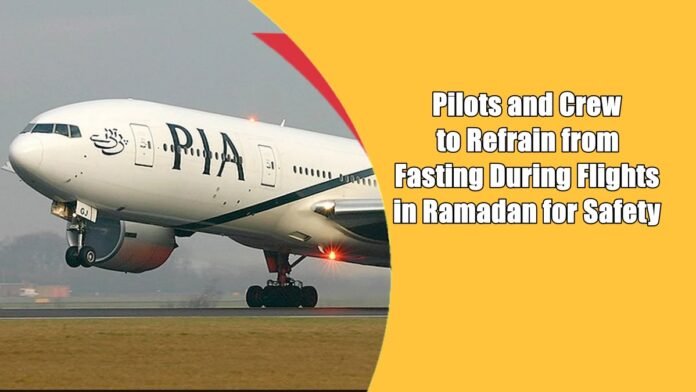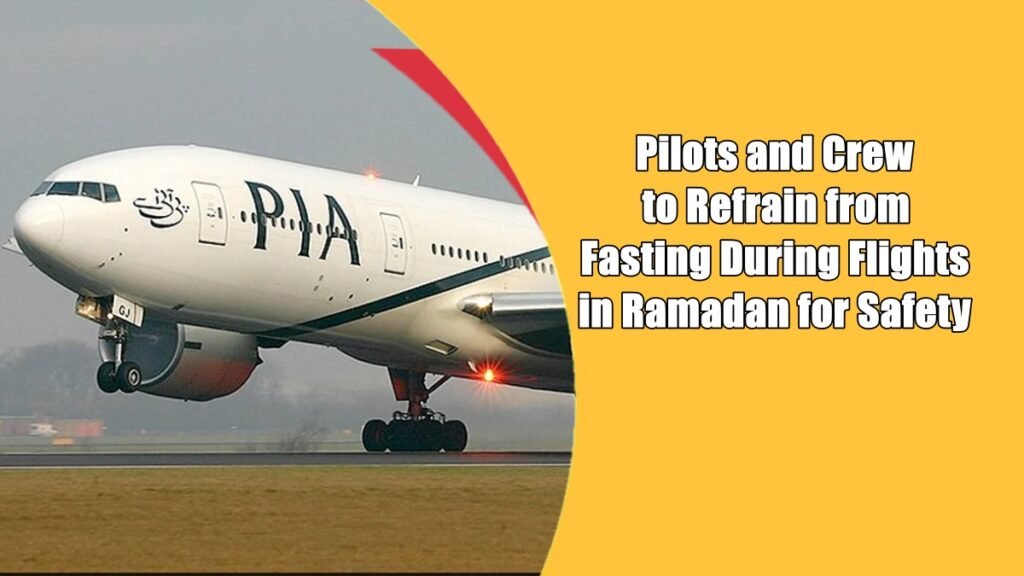
Karachi: In a significant move to enhance flight safety, Pakistan International Airlines (PIA) has issued an advisory to its pilots and cabin crew, instructing them to avoid fasting during their duty hours throughout the holy month of Ramadan. This decision comes as part of PIA’s commitment to ensuring the highest standards of operational safety and is backed by medical guidelines that highlight the potential risks associated with fasting while operating flights.
The medical advice, as cited by PIA, points out that fasting could lead to dehydration, reduced alertness, and sleep-related issues, which may compromise the ability to effectively manage the aircraft. In light of these concerns, both the Corporate Safety Management and the Crew Medical Center have strongly recommended that all flight personnel abstain from observing Roza (fast) during flight hours.
Acting on these recommendations, PIA’s top management has mandated compliance for all pilots and crew members, effective immediately. The directive applies to both international and domestic flights, emphasizing that the safety of passengers and crew is of paramount importance.
This precautionary measure gains further significance in the wake of the tragic crash of a PIA aircraft in a densely populated area near Karachi airport in May 2020. The Aircraft Investigation Board’s report on the incident attributed the crash to human errors and criticized PIA and the Civil Aviation Authority for the lack of clear guidelines regarding pilots fasting during Ramadan while on duty. The report’s findings have prompted a reevaluation of existing policies to prevent such accidents in the future.

PIA’s decision is a proactive step towards mitigating risks and enhancing the safety protocols for flight operations during the fasting period. It underscores the airline’s dedication to maintaining rigorous safety standards and its responsibility toward the well-being of its passengers and crew.


















































